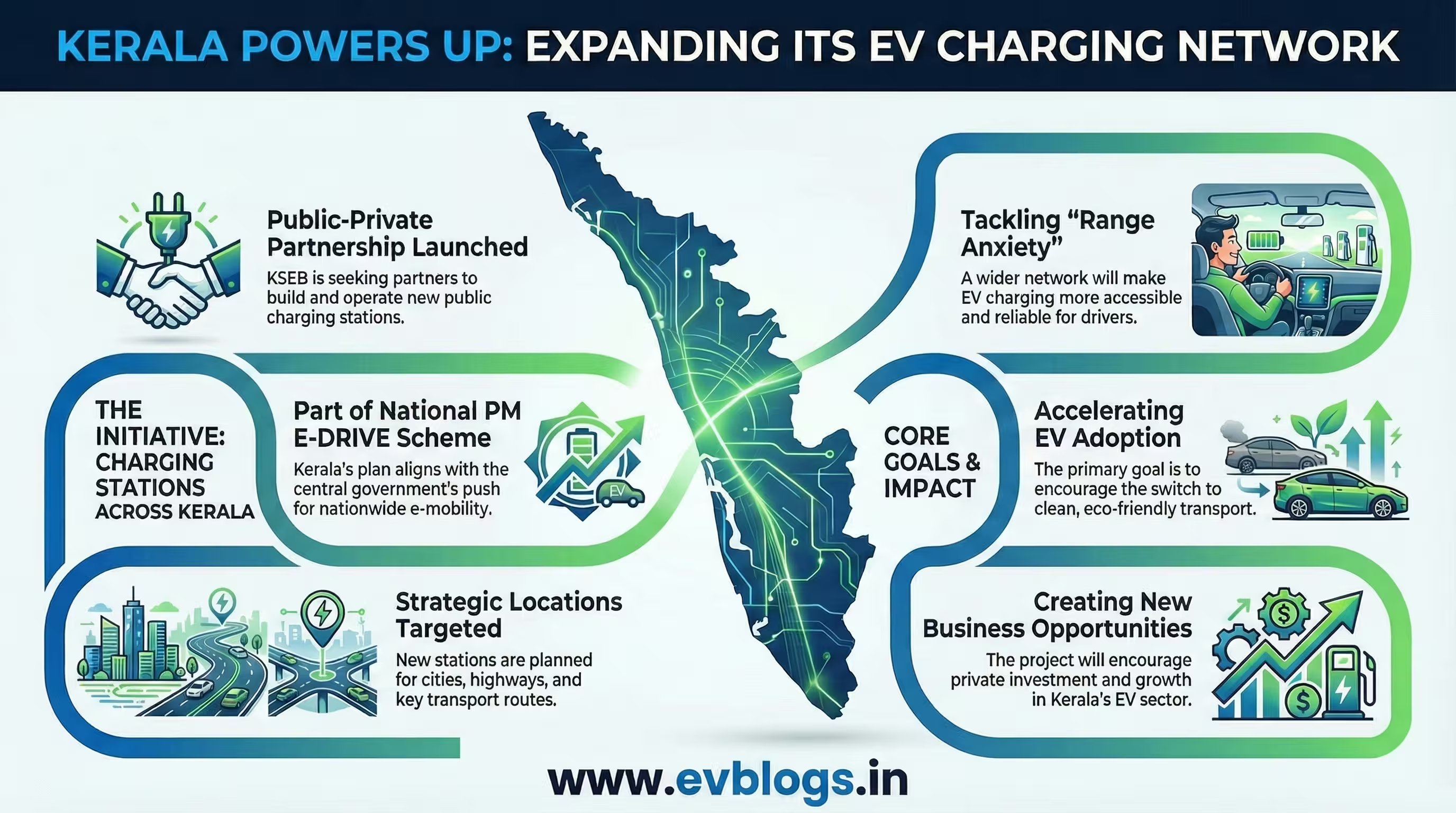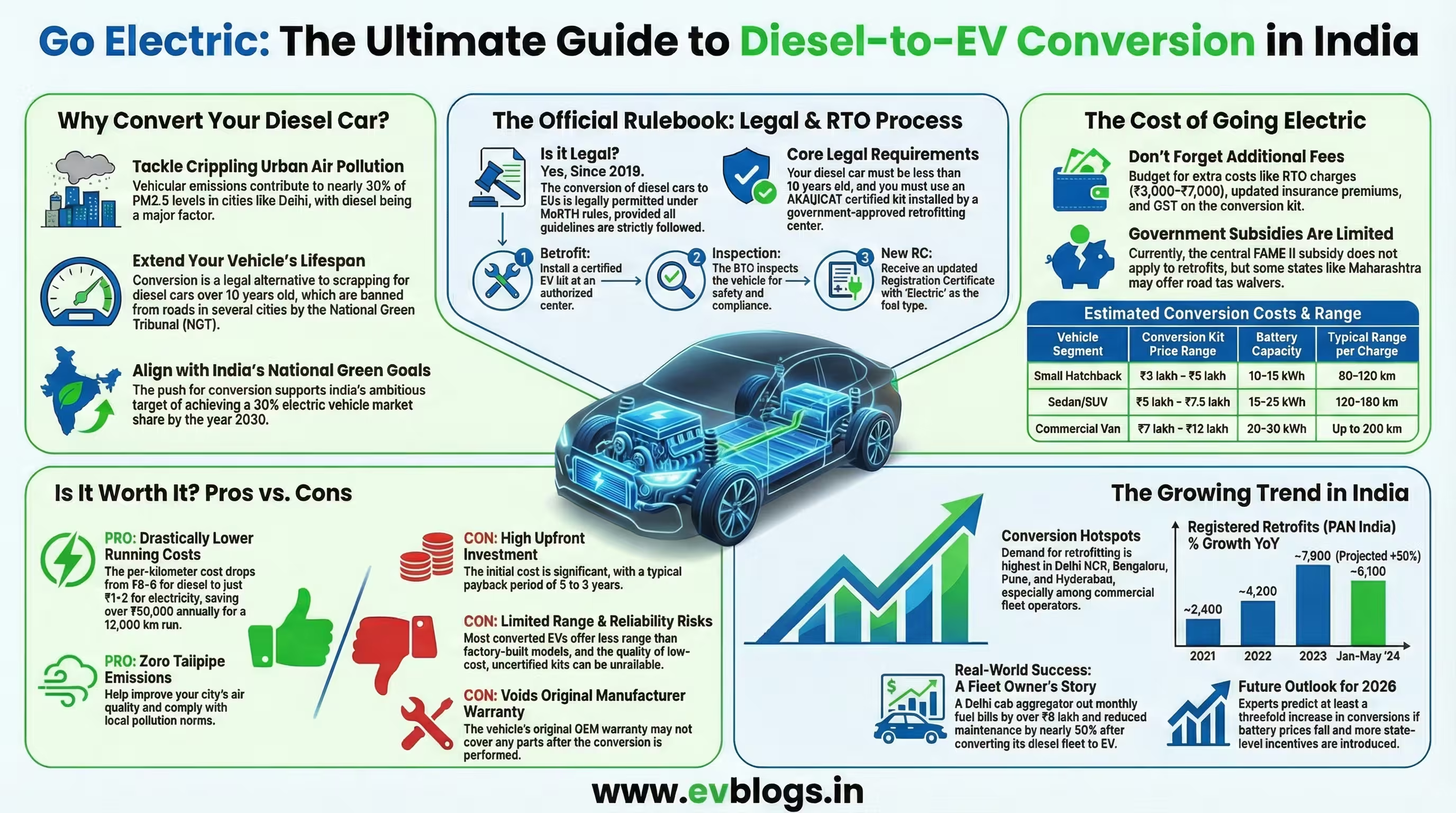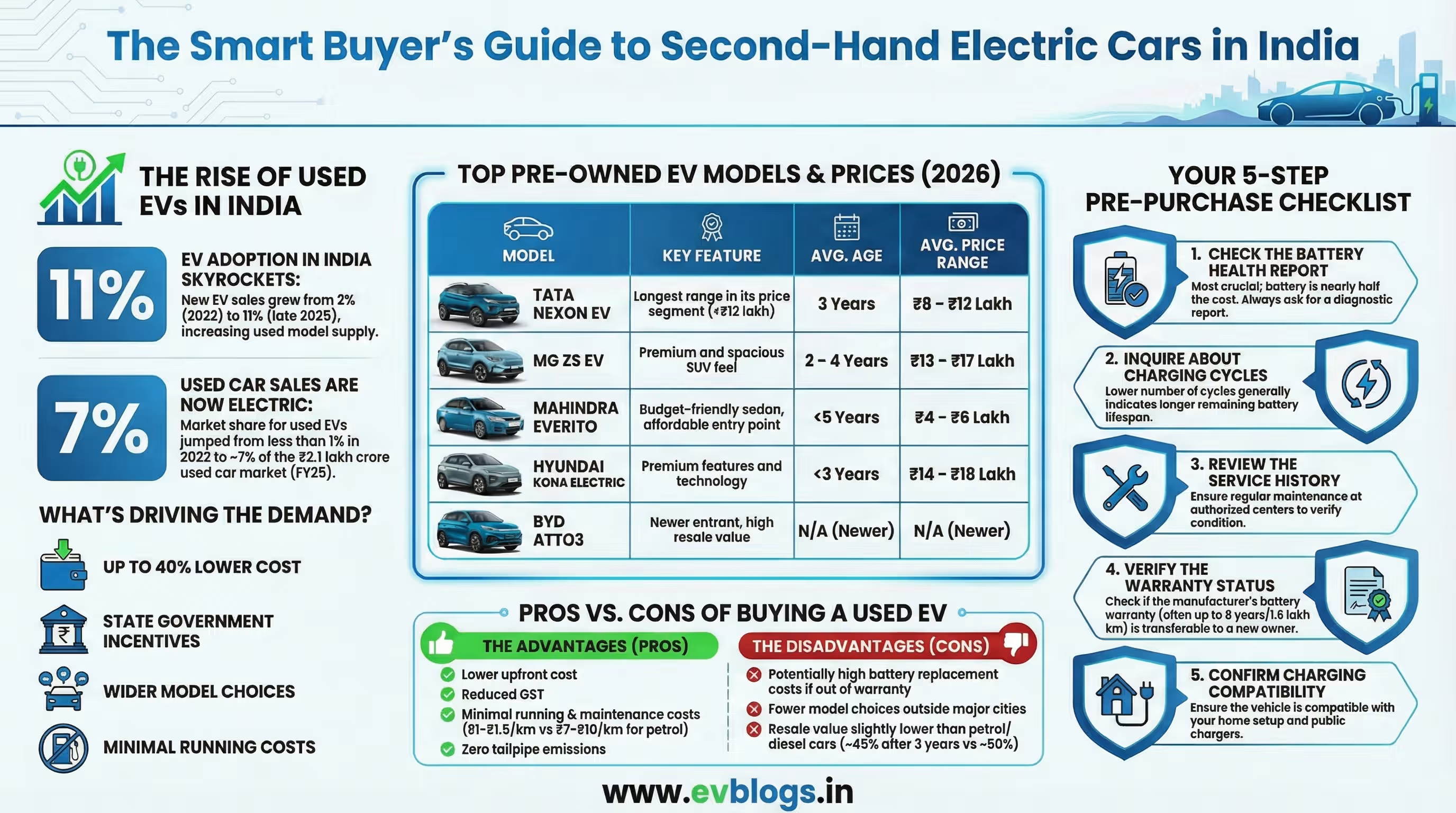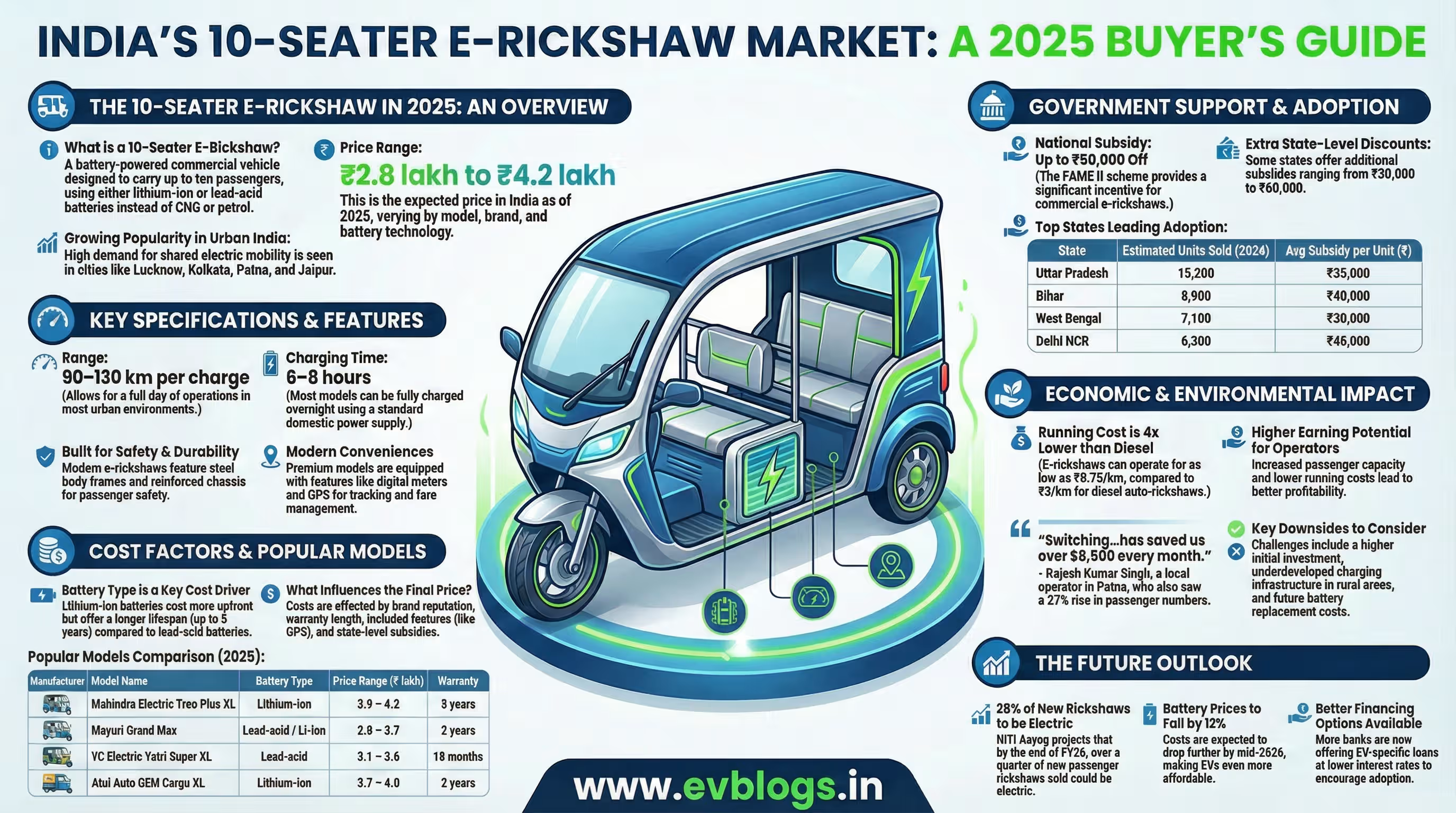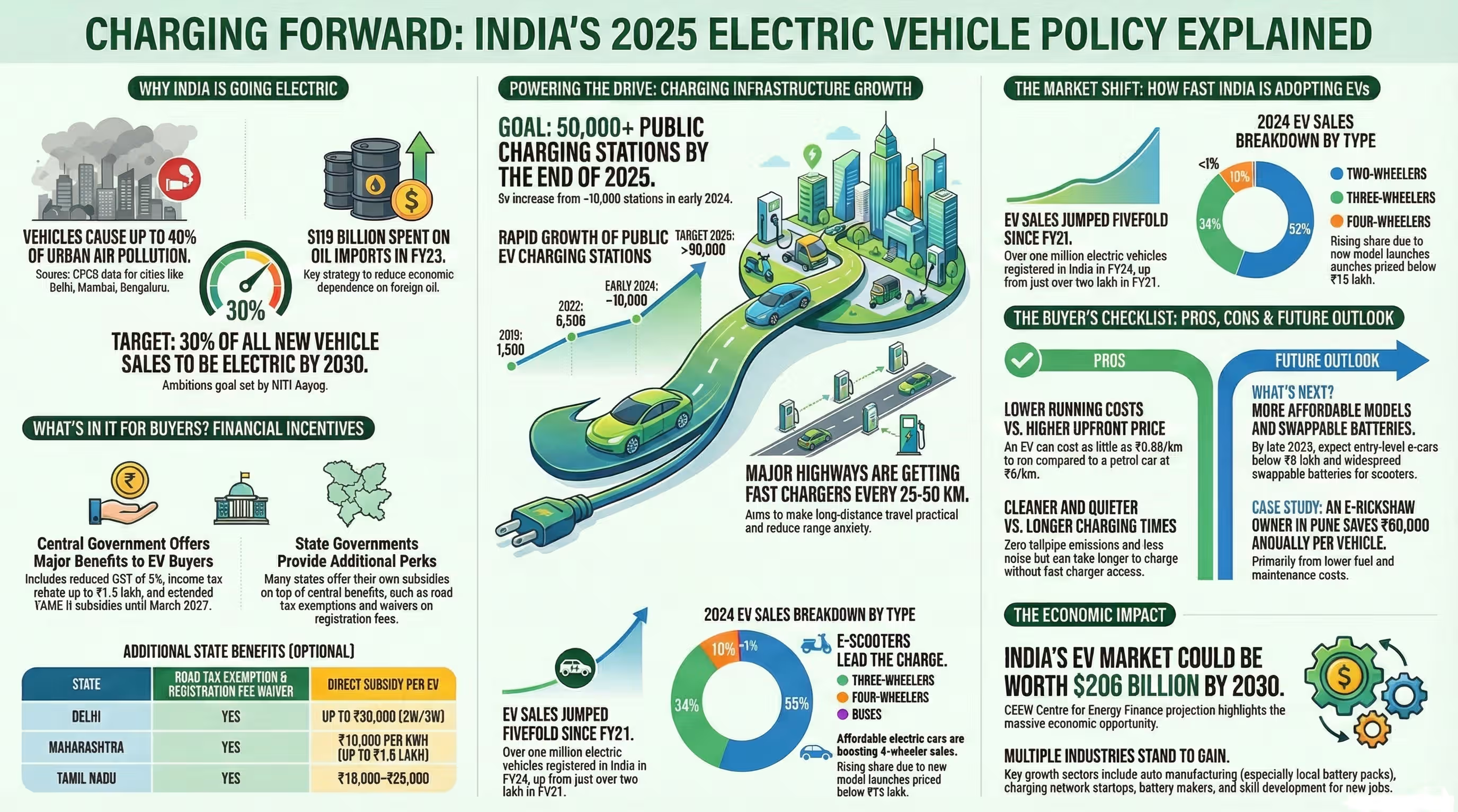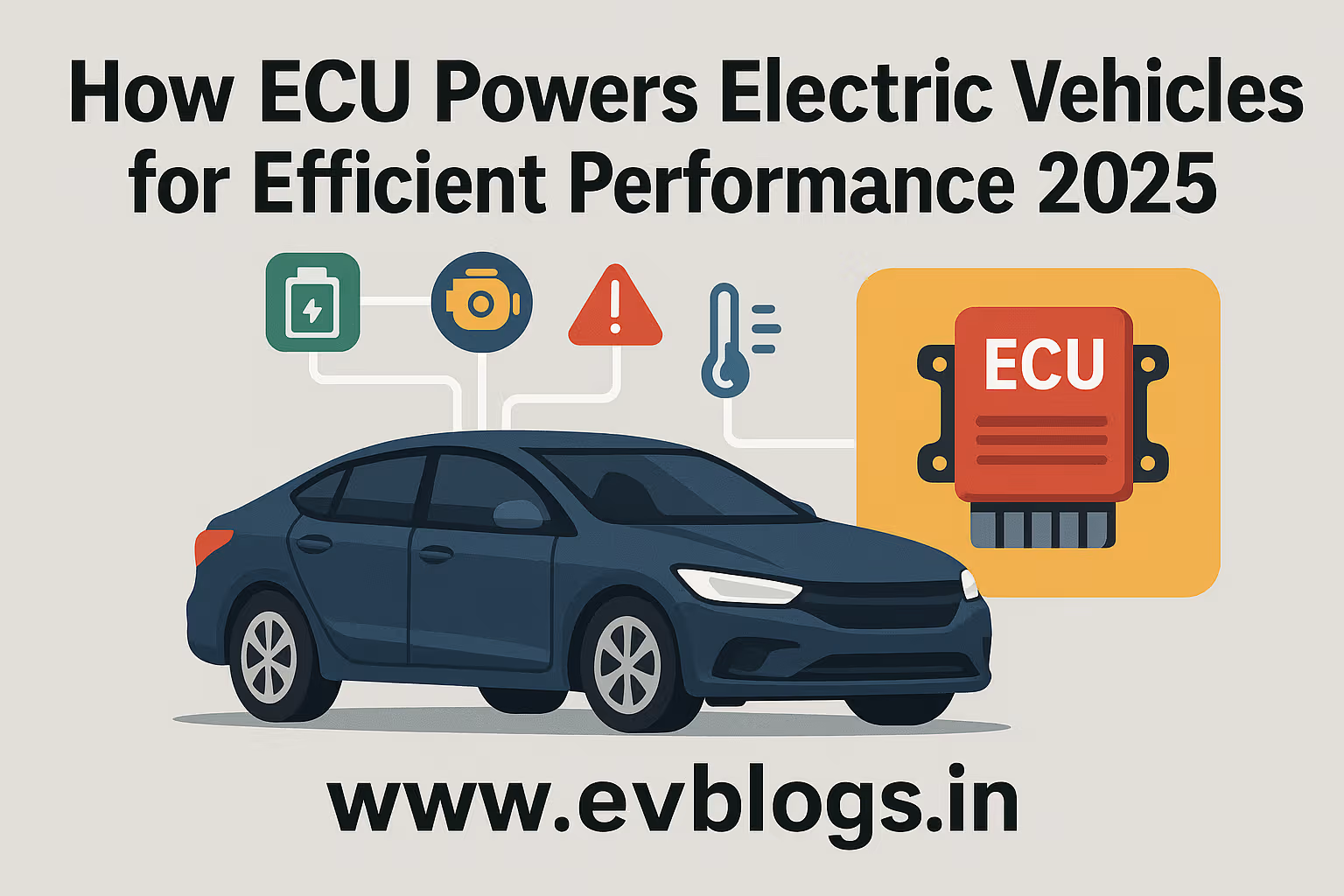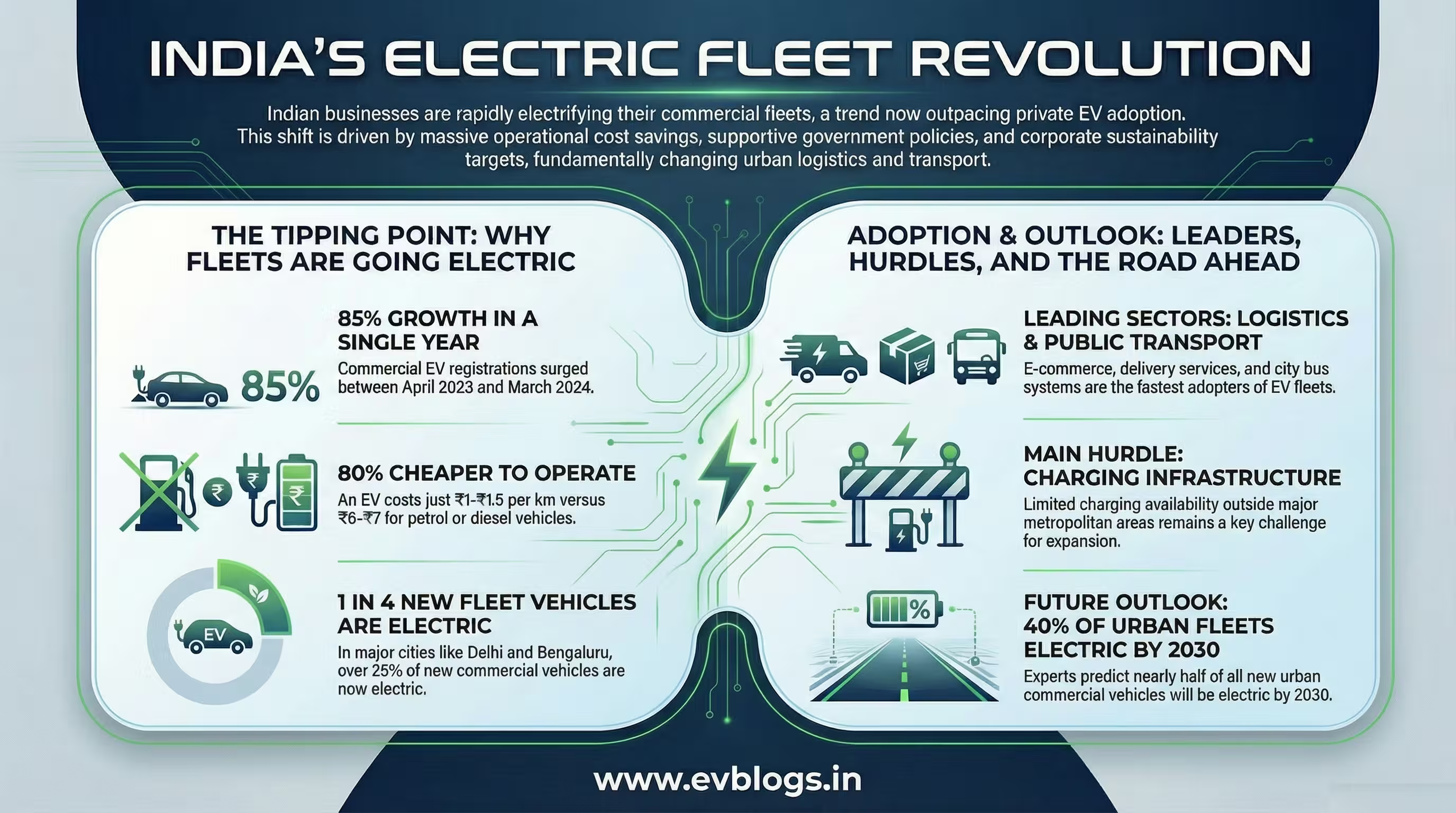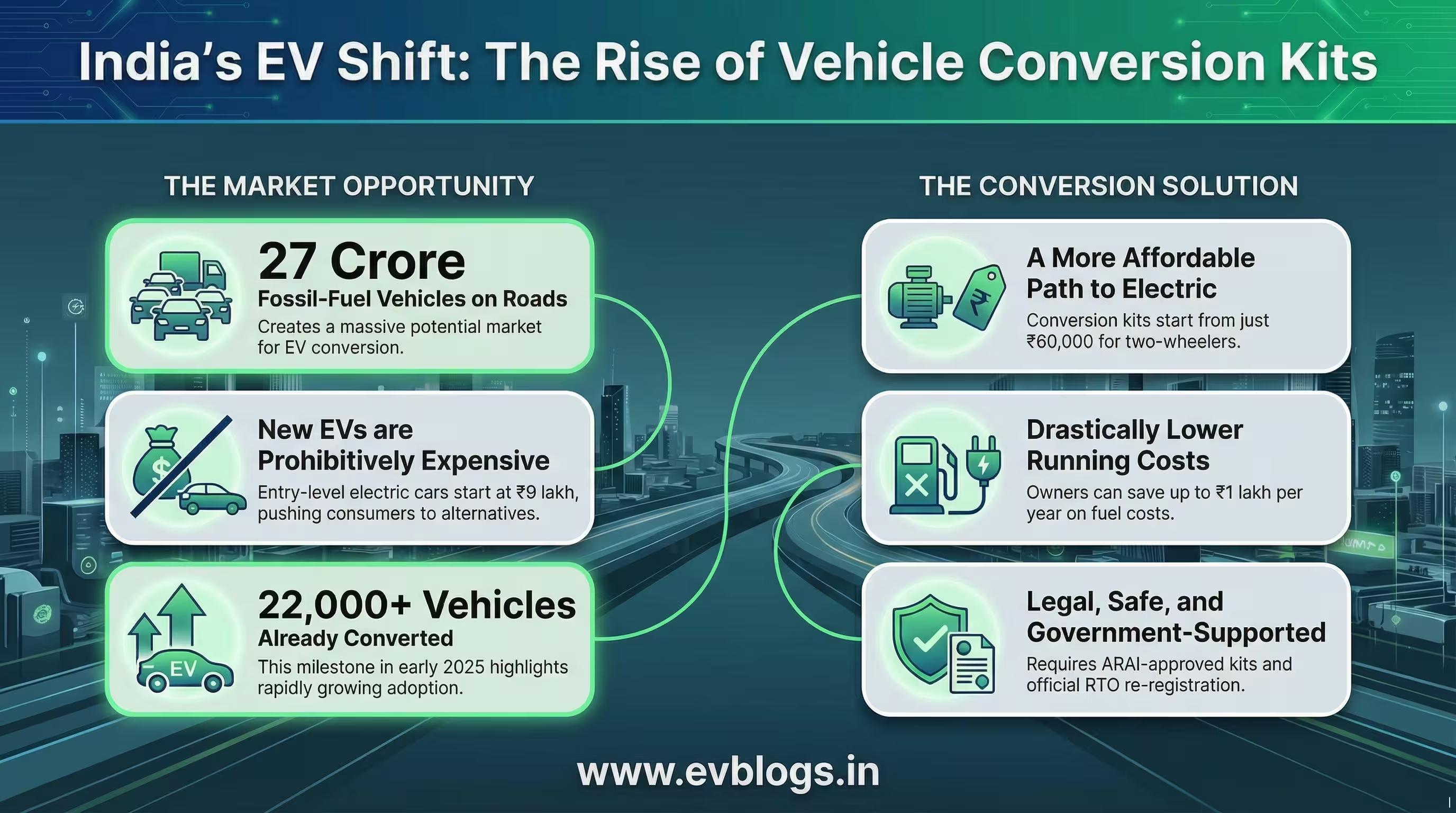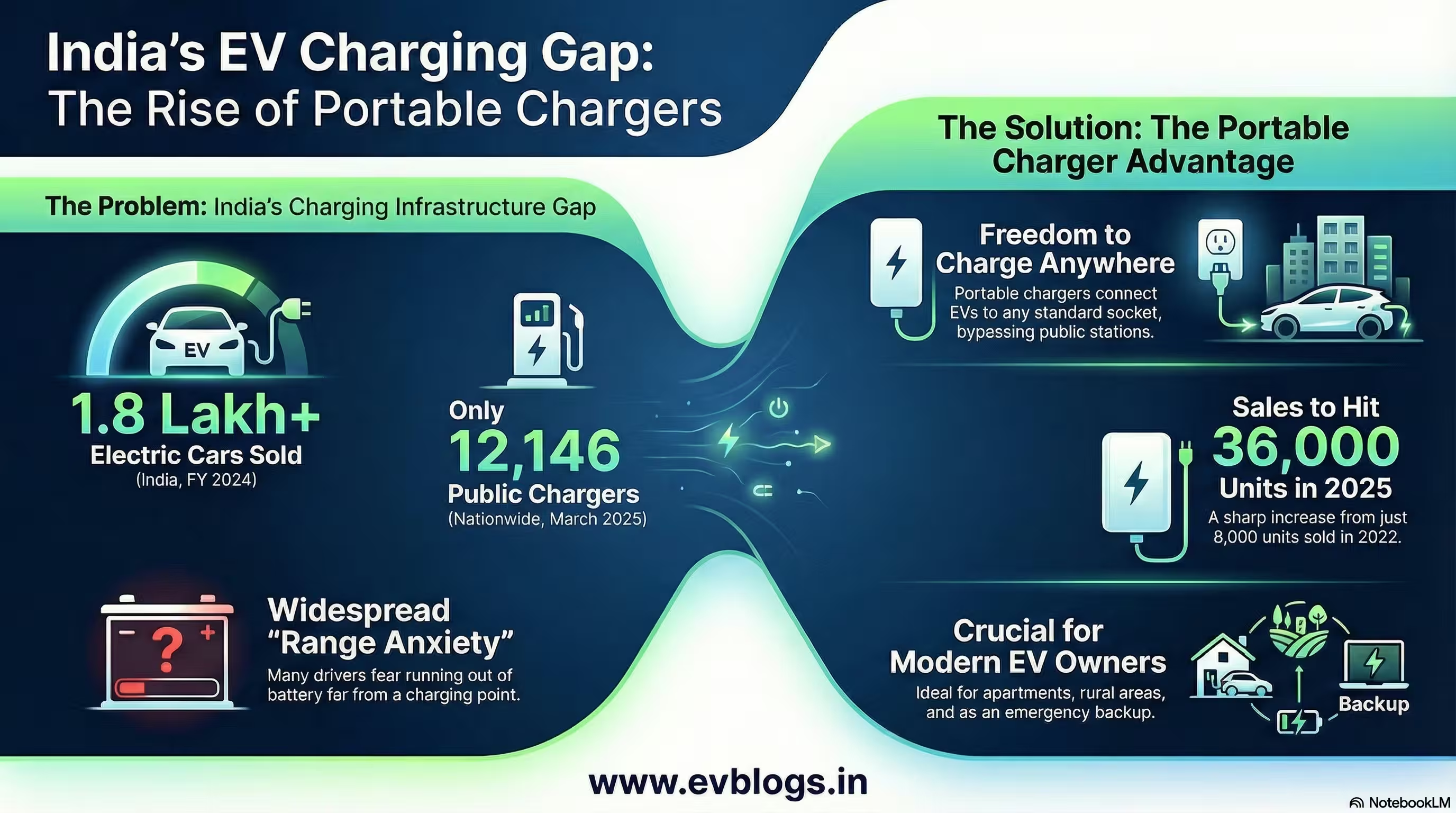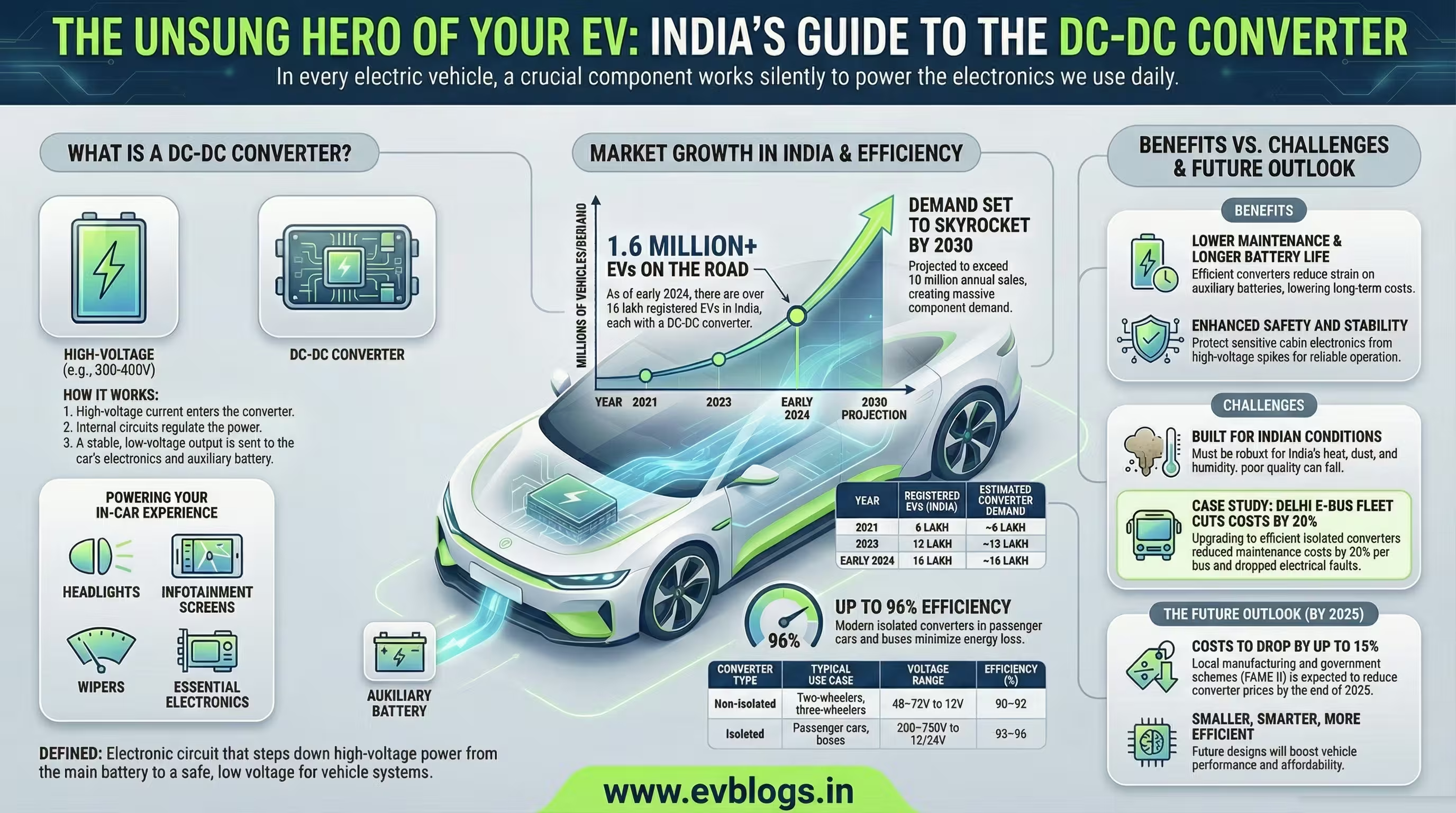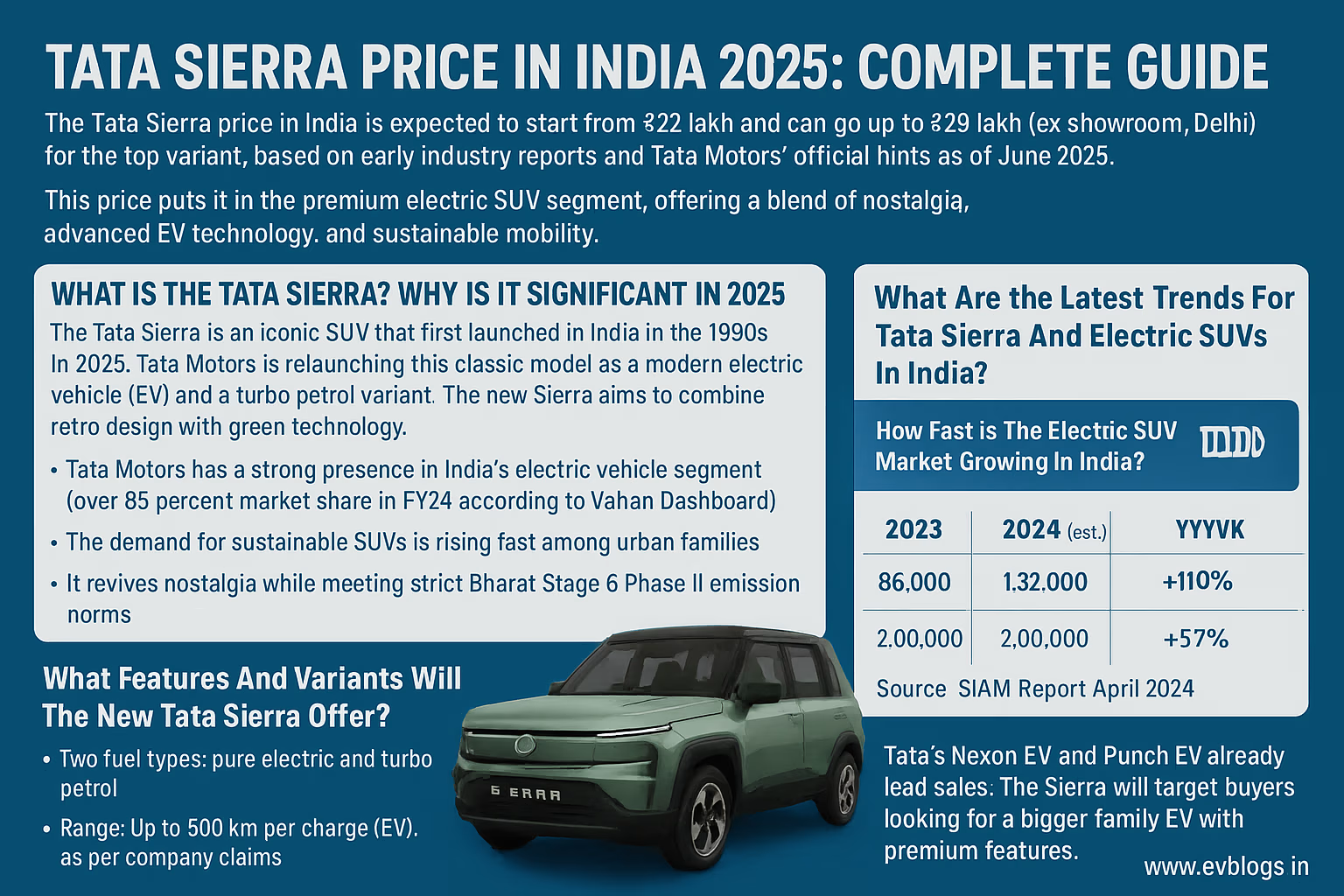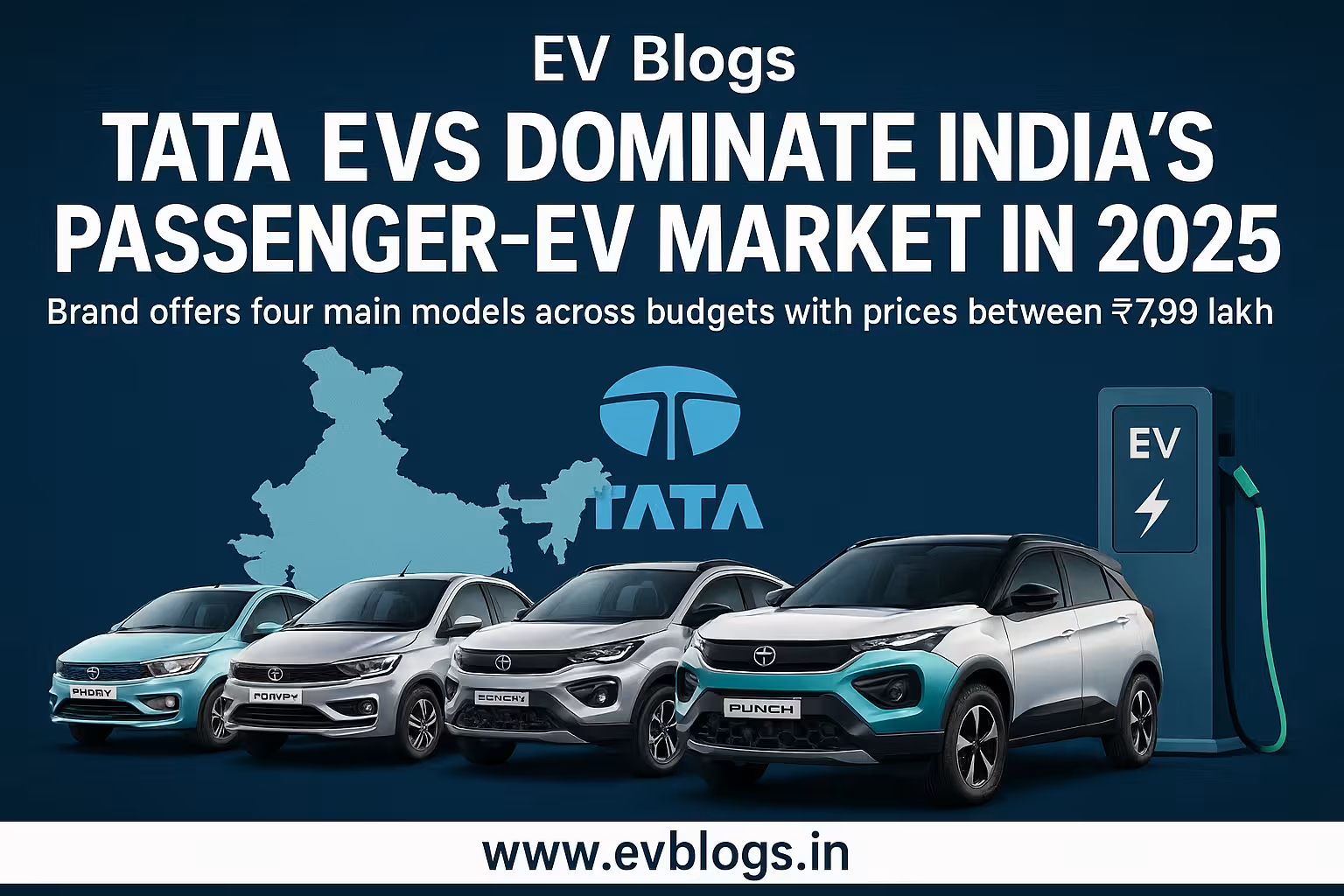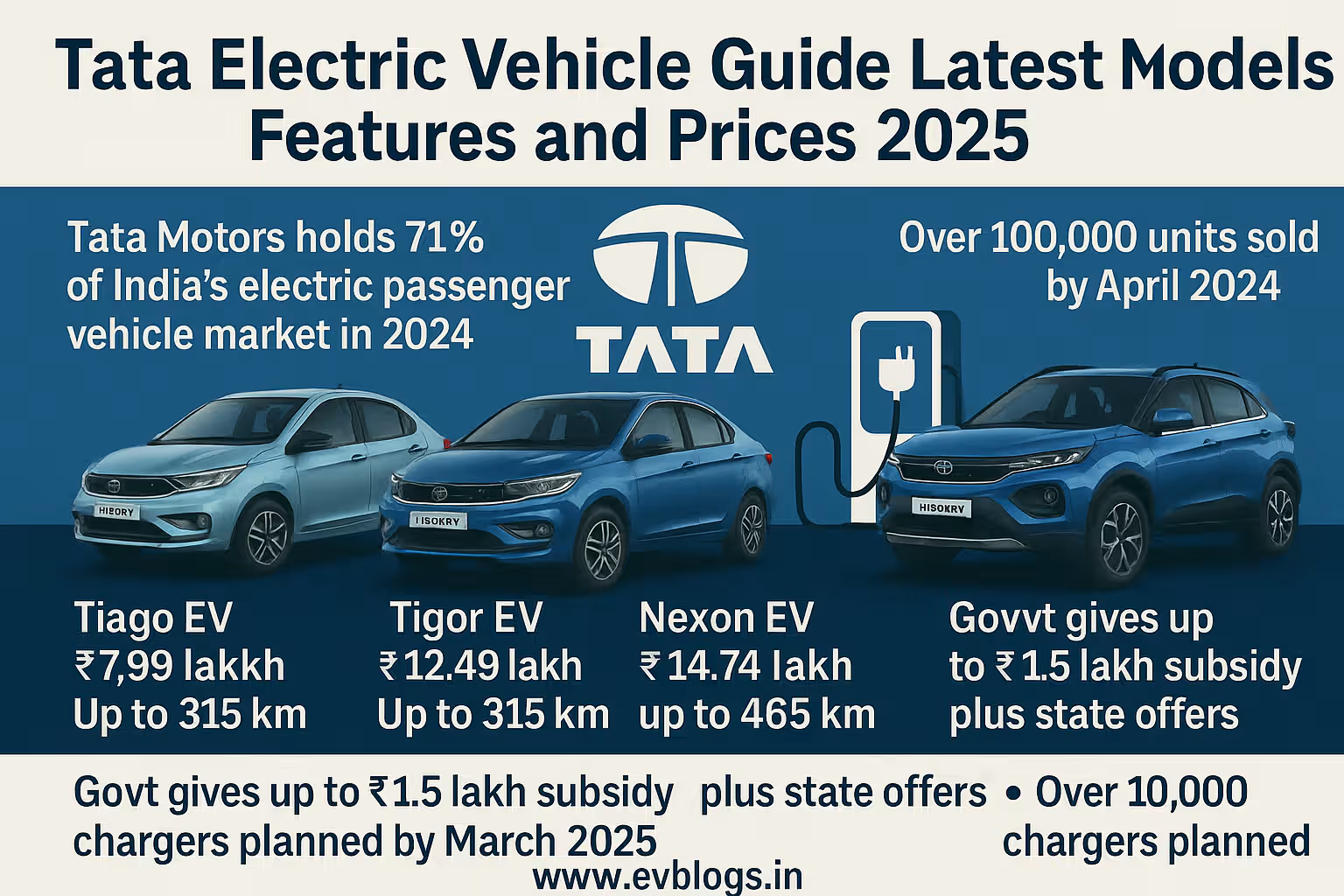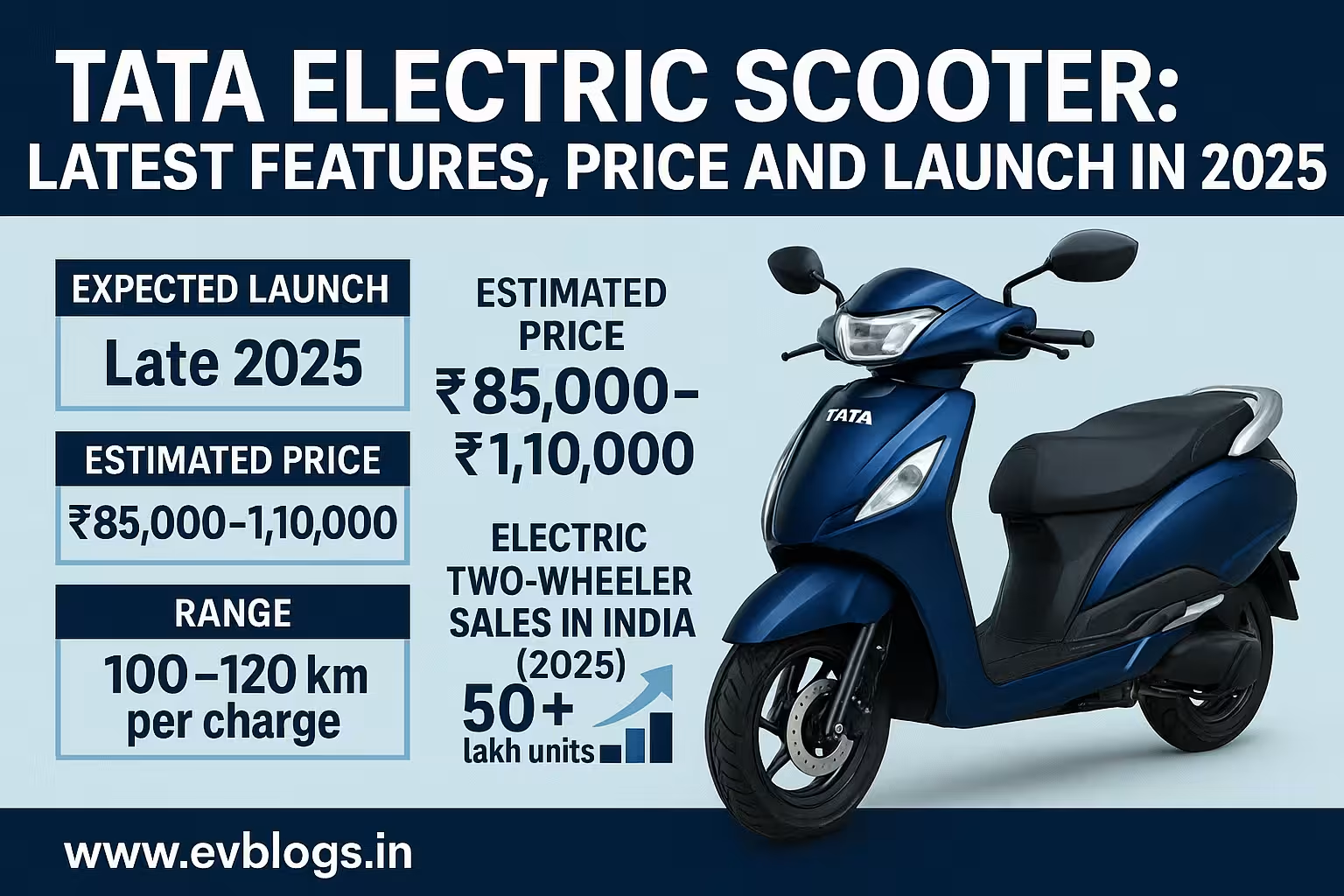Hedhvick Hirav
Hedhvick Hirav is a dedicated EV researcher and editor with over 4 years of experience in India’s growing electric vehicle ecosystem. Their contributions have been recognized in leading sustainability publications and automotive journals.
Summarize & analyze this article with
Choose an AI assistant and open this article directly:
Tip: if the AI doesn’t fetch the page automatically, paste the article URL manually.
Introduction: The Rise and Relevance of Electric Vehicles
The Rise and Importance of Electric Vehicles Introduction: Many years ago, there were horse-carriages, which were used to travel around the country. The automotive industry is changing at a very rapid rate and one of the greatest changes is the emergence of electric vehicles (EVs). Electric cars were something new, but nowadays, they are a usual thing on the streets of cities and in the garages of suburbs all over the world. It might be your neighbor charging his/her car in the night, ride-sharing services that will now offer quieter and zero-emission rides, or governments with high electrification targets, but EVs are no longer a fringe phenomenon anymore.
What the heck is an electric vehicle? What are the differences between it and conventional cars and why is this transition so significant? More to the point, how can EVs be incorporated into your life or driving habits? This is the ultimate guide to the future of personal transportation, with the latest facts, practical information, and user-friendly advice to anyone interested in the future of personal transportation.
What is Electric Vehicle?
Images and Categories What Is Electric Vehicle? In short, EVs do not use gasoline or diesel as the primary source of power to move, but rather stored electricity.
An electric vehicle (EV) is a broad term that describes any automobile that uses one or more electric motors to move itself, with energy stored in rechargeable batteries rather than fossil-fuel combustion.
EVs Types
- Completely electrically powered;
- Electric Vehicles Battery Electric Vehicles ( BEVs):
- No engine and fuel tank onboard;
- E.g. Tesla Model 3, Nissan Leaf, Chevrolet Bolt.
- Combine a conventional engine with a rechargeable battery;
- Can operate on electricity only over short distances, then change to gasoline;
- Plug-in Hybrid Electric car (PHEV)
- Illustrations of Toyota Prius Prime and Mitsubishi outlander PHEV.
- Use an electric motor and gasoline engine, but do not plug in;
- Charging is done through regenerative braking and the engine;
- HEVs, (Hybrid Electric Vehicles):
- Toyota Prius (non plug-gino), Honda Insight.
- Produce electricity with a hydrogen fuel cell;
- release nothing but water vapor at the tailpipe;
- Fuel Cell ElectricVehicle ( FCEVs )
Type Primary Power Source Plug-In Capability Fuel Used Example Models
- Toyota Mirai, Hyundai Nexo etc.
- PHEV Battery + Engine Yes Gasoline Toyota Prius Prime
- HEV Battery + Engine No Gasoline Toyota Prius
- FCEV Fuel Cell (hydrogen Yes Hydrogen Toyota Mirai
- EV electric vehicle (battery) Yes None Tesla Model 3, Nissan Leaf
Key Facts and EV working
How does Electric Vehicle work? Essentially, EVs are vehicles that run on large rechargeable batteries that power an electric motor. This engine rotates the wheels in order to provide direct torque and acceleration.
This energy is accumulated in a large battery pack, which is charged either through the electric grid (in the case of BEVs and PHEVs) or, in the case of FCEV, hydrogen tanks (here, the car will be in agony).
Best EV Components
- Battery Pack: The storage of electricity; in newer electric cars it is increasingly Lithium Ion.
- Electric Motor: Allows the conversion of electrical energy into a kind of motion.
- Power Electronics: Regulates the speed, torque and power distribution.
- Charging Port: This is where the vehicle is plugged to the external power.
- Thermal Management System: Maintains battery and electronics at the optimum temperature.
- The onboard Charger: Extracts AC grid power and recharges the batteries using it as DC source.
LG charging types: EV charges.
- Level 1: normal: 120V; low (up to 5 miles/hour).
- Level 2: 240V; fast at-home or parking lot; 10-40 miles/hour.
- Who is Eligible to 2 Drive an Electric Vehicle? Fast Charging: Social, quick (up to 80 percent within 20-40 minutes in the majority of the models).
Access and qualified for Eligibility
Who is Eligible to QUIC?
- Fixed route driver: It is good enough for daily commute within the span of EV.
- Families: EVs have a lot of space and safety.
- Fleet and business users: Low running costs and emissions will be popular.
- Sickle-drivers, in quest of purer climes.
What can affect Eligibility and Convenience
- Access to Charging: Home charging is most convenient, but the difference is closing as the public networks are growing.
- Daily requirements: Compare the average and the range of the vehicle each day.
- Local Weather: Incredibly hot or cold weather can greatly affect the battery life and range.
- Cost: EVs in terms of purchase up-front may be more costly than their ICE counterparts but the incentives and running expenses have covered the difference.
Environmental Advantages
The Electric Driving Beliefs In direct operation, BEVs do not result in any emissions.
- Substantial reduction in greenhouse gases with renewable energy.
- Considering Air Pollution: How to help create a healthy environment and healthy people by reducing air pollution.
Cost Savings
- Reduced Noise: There is reduced noise pollution especially in the cities.
- Lower “Fuel” Prices: Electricity is usually less expensive per mile than gasoline, especially when it is charged at night at home.
- Less Maintenance: Fewer Moving Parts, No Oil Changes, Less Brake Wear as Regenerative Braking is available.
- Federal and state tax credits, or rebates and toll lanes or HOV access, in certain areas.
- Performance and comfort are offered to equal the stature of their predecessors.
- Instant Torque: Fast acceleration and easy driving.
- Regenerative Braking: The energy used in braking is used to increase range.
- High-Tech: The majority of EVs are fitted with the latest infotainment, connectivity, and driver-assistance technologies.
The How-To Guide to Electric.
How many miles do you walk a day?
Review Your Style of Driving
- Do you need a long-range EV or will a shorter one do?
- Consider charge-Only solutions
- Is home charging possible or installable?
- Do you have access to Qi chargers in the workplace or on the commute?
Experience models and test drive:
- Go to dealerships or EV events to get a feel of it.
- Examine Incentives:
- Check eligibility of federal, state or local incentives.
- Compare size, price, features and range.
Incentives Include Incentives in Bolster Your Budget
- Learn about dealership or independent options of service
- Learn battery warranty and life.
Installation of Home Charger (where possible):
- Install Level 2 by a licensed contractor.
- Select charging equipment that is rated to your vehicle.
Buy or Lease
- The decision to lease or buy, particularly with the changing battery technology.
- Think of total cost ownership
Learn EV Features
- Familiar with regenerative brakes, charging and digital connecting.
Similarities in Interests, Professional Informedness
Is Anxiety a Major Hurdle? The fear of running out of battery before locating a charger was one of the primary issues in the early days of EV, also known as range anxiety. Newer versions have a range of 200-400+ miles when fully charged which is more than enough to take care of daily needs. The charging infrastructure is also expanding fast in the US, Europe, and Asia.
Practical Tips:
- Use GPS instructions on the smartphone or in-car Services to navigate and find the charger locations.
- Most electric vehicles provide the preconditioning of cabins during charging to save ground range.
- A plug-in hybrid (PHEV) is a good choice when there is a need to travel long distances occasionally.
Batterylife and exchange
Most contemporary EVs employ lithium-ion batteries that have a life of 8-15 years. Manufacturers will provide long battery warranties (usually 8 years or 100,000 miles). Battery recycling is a new industry, and used EV batteries are being reused as stationary storage.
Low Temperature Results
Cold weather may decrease the range of EVs because of battery chemistry and heater consumption. Some of the solutions include pre-heating the cabin when plugged in, seat warmers as an alternative to cabin heat, and newer models with heat pumps to provide efficient climate control.
Electric vs. Gasoline Vehicles: A Comparison that is Easy to Use
- Electric Vehicle (EV) - Gasoline Vehicle
- Fueling time 30 min (fast charge) - 12 hrs (Level 1) 5-10 minutes
- Cost of gas per mile Fewer (depends on gas prices) More (depends on fuel electricity rates)
- Maintenance Less ( Many moving parts) More frequent( oil, belts, etc.)
- Environmental impact 0 tailpipe emissions Carbon emissions
- Average (2024) 200-400-plus miles 300-500 miles readily refuelable
- Purchase price Tends to be higher (pre-incentives) Large price range
- Steering feel Noise, road feel Slowing off, no thrust feel
Who is a Suitable Candidate of EV?
- Urban commuters: There is short, predictable commuter, with a convenient way to charge.
- Homeowners: An easier version of Level 2 charger installation.
- Multi-Car Households: An EV can substitute one of the vehicles of a household, i.e., gas or a hybrid can serve as a backup vehicle.
- Fleet Managers: Lowest operating cost and eco credentials.
- Rideshare Drivers: More costly to start but less costly per-mile.
Practical Tips: What You Can Do so You Can Maximize Your EV
- Charging Strategy: Charging low electricity rate.
- Trip Planning: Long distance travelling can be scheduled with assistance of the apps, such as PlugShare or ChargePoint, to locate charging stations.
- Tire Maintenance: The weight of EVs is heavier, thus you may need to check on tire pressure more frequently.
- Incentives: rebates and credits can save money quite a lot; research good sources.
- Keep Current: Battery and charging technology is changing; leasing may be an option to have flexibility.
FAQ: Electric Vehicles on the Ground:
How many dollars do you spend to charge-up an EV?
Charging costs vary with local electricity rates, but are generally between 0.03 and 0.06 per mile at home.Do EVs need special charger?
Level 1 is charged using a household outlet but Level 2 requires a 240V outlet and a special device. The majority of EVs are supplied with the required cables.What occurs when an EV runs out of?
The car will come to a halt as a gasoline car does Roadside assistance also has the ability to tow you to a charger. The secret to this is planning.What is the range of EV batteries?
The average battery is guaranteed 8-10 years or 100,000 miles. Some last longer, with a gradual loss of range.Is there apt quantity of charging in general?
Charging networks are rising at a furious speed with tens of thousands of publicly available chargers in the US, EU, and other markets. The countryside is less inhabitedIs home charging costly to install?
Depending on the electrical panel configuration and the type of charger, costs can be between $500 and 2,000 dollars in hardware and installation.Are the electrical automobiles succeed?
EVs are as safe or safer than other vehicles and in many cases, they pass crash tests. Battery packs are made with several safety features.
In Conclusion Electricity is the Future
Electric cars are no longer a dream of the future, but a viable, efficient and more cost-effective alternative to the average motorist. The transition to electrified transport is no longer a dream since battery technology is improving, charging infrastructure is being installed, and purchase incentives are being provided. The choice of buying an EV today means reduced operating costs, reduced environmental impact, and the opportunity to experience the newest automotive technology.
Before you decide to make the switch, you should always take your time to consider your needs, research the available models, and come up with a charging strategy. The world is changing rapidly, and as it does, electric vehicles will not only transform the way we travel, but will have a positive effect on our communities and the environment.
Sources
- U.S. Department of Energy, Alternative Fuels Data Center: https://afdc.energy.gov/
- International Energy Agency, Global EV Outlook 2024: https://www.iea.org/reports/global-ev-outlook-2024
- Environmental Protection Agency, Electric Vehicle Myths: https://www.epa.gov/greenvehicles/electric-vehicle-myths
- Consumer Reports, Electric Vehicle FAQs: https://www.consumerreports.org/cars/hybrids-evs/what-to-know-about-electric-vehicles/
- Car and Driver, How Do Electric Cars Work?: https://www.caranddriver.com/research/a32813452/how-do-electric-cars-work/
- Edmunds, Electric Vehicle Buying Guide: https://www.edmunds.com/electric-car/
- PlugShare: https://www.plugshare.com/
- CleanTechnica, EV Cost Comparison: https://cleantechnica.com/ev-cost-comparison/


